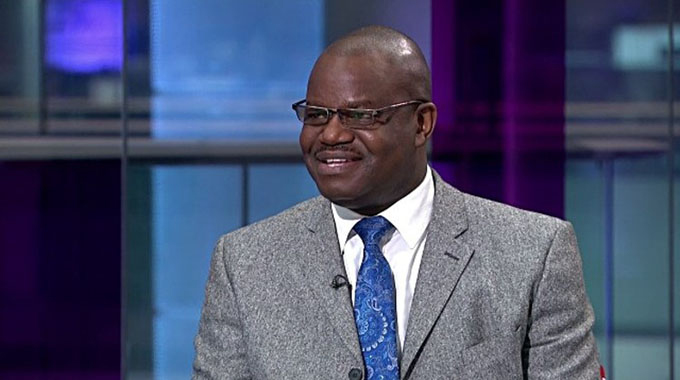
The Sunday Mail

Leroy Dzenga
Senior Reporter
This year’s SADC Anti-Sanctions Day commemorations — which will be observed on Tuesday in the region, the continent and beyond — –will be bigger than before as the world rallies to intensify the growing lobby for the embargo imposed by some Western nations on Zimbabwe to be unconditionally lifted, Government has said.
The annual commemorations were set aside by the Southern African Development Community (SADC) at its 39th Summit of Heads of State and Government in Dar es Salaam, Tanzania, in 2019 to muster the collective voice of the region in calling for the removal of the unilateral coercive measures.
The sanctions were imposed by the United States (US), the United Kingdom (UK) and the European Union (EU).
Over the past two years, activities around the Anti-Sanctions Day were scaled back as a result of Covid-19.
In a statement, Information, Publicity and Broadcasting Services Minister Senator Monica Mutsvangwa said this year’s event will be preceded by a solidarity summit tomorrow that will build up momentum towards the main event on Tuesday.
“We will also hold the SADC Solidarity Summit on October 24 to build that momentum towards the Anti-Sanctions Day activities. We have been surviving in the face of sanctions; we can achieve more once they are removed. Let us come in our numbers and be part of the lined-up activities,” said Minister Mutsvangwa.
Permanent Secretary in the ministry, Mr Nick Mangwana, yesterday told The Sunday Mail that this year’s commemorations will be bigger than in past years.
“In Harare, President Mnangagwa will address the nation from State House. The speech will be broadcast live,” said Mr Mangwana.
“Patriotic citizens and members of the ruling party ZANU PF and other political
parties will march across all 10 provinces, making their voices heard in their calls to have the sanctions removed. Provincial ministers will address the marching crowds,” he said.
On Tuesday evening, an Anti-Sanctions Gala will be held at the Chitungwiza Aquatic Complex, where various musicians are expected to unite in song.
Mr Mangwana said Tuesday is, however, not a public holiday.
Foreign Affairs and International Trade Permanent Secretary, Ambassador James Manzou, said the SADC Anti-Sanctions Day is now a noteworthy fixture on the diplomatic calendar.
“All the 16 SADC countries have a commitment to commemorate and observe the day through one activity or the other. This is in accordance with the SADC resolution which establishes the day. At every station, they organise their events through the SADC Group of Ambassadors. Each and every Zimbabwean embassy across the world will have an event to mark the day. Other countries around the world, outside of SADC, also want to be part of the solidarity,” he said.
In other jurisdictions within the region, SADC is coordinating the events.
Speaking to The Sunday Mail from his base in Maputo, Zimbabwe’s chief diplomat to Mozambique, Ambassador Victor Matemadanda, said the Democratic Republic of Congo Embassy, by virtue of being SADC chair, will play a key part in coordinating activities.
“The question of sanctions has become an African Union (AU) and SADC issue. This means that in diplomatic circles, Zimbabwe is not going to be seen doing anything on its own because SADC and Africa have taken over the issue of fighting sanctions,” he said.
The stance by Africa and the region, he added, comes from the realisation that other countries on the continent are being affected by the sanctions as well.
“Africa, through the chairperson of AU, has taken it upon itself to campaign for the removal of the illegal sanctions imposed on Zimbabwe by the West. SADC has done the same to the extent that the Zimbabwean embassy is not going to have its own statement. The statement is going to be given by the chairperson of SADC Ambassadors, who is the Ambassador of DRC, who will be in charge of leading the call for statements against sanctions imposed on Zimbabwe.”
In a press briefing to hand-picked media personnel on Wednesday last week, the US acknowledged the impact the Zimbabwe Democracy and Economic Recovery Act (ZDERA) is having on the country’s economy, but sought to downplay the scale of the coercive measures.
US Department of State sanctions coordinator, Ambassador James O’Brien, admitted that sanctions by his country on Zimbabwe are scaring away investors.
“We are aware that because of the depth of the problems and the duration of this programme, there probably are a lot of companies who believe that doing business in Zimbabwe is just too difficult. And that does cost opportunities for the people of Zimbabwe,” Ambassador O’Brien said.
Last year, during the Anti-Sanctions Day, the US Embassy ended up tweeting in local languages such as Shona and Ndebele in an attempt to pre-empt the mounting diplomatic lobby by the region.
Conservative estimates suggest sanctions could have cost the country more than US$40 billion in the past two decades.
But calls for the measures to be removed continued to grow every year.
More than six Heads of State — including SADC chairperson President Felix Tshisekedi of the DRC and AU chairperson President Macky Sall of Senegal — raised the issue at the 77th session of the United Nations General Assembly in New York in September.



